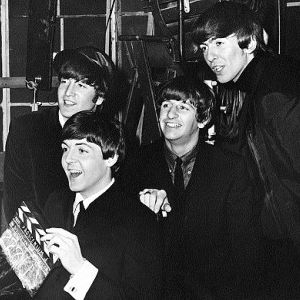
Beatles’ record label released 1960s recordings to protect copyright
December 18, 2013 3:03 pm Leave your thoughts
Whenever a musician records anything from the studio, that rendition of the song, whether it be good or bad is protected for 50 years. If the time period is up, any other artist may request to sample the recordings to use it at their own will, according to CBS News. The Beatles' label, Apple Corps. decided to protect sounds from the band's first album by releasing the "The Beatles Bootleg Recordings 1963."
Artists have used unreleased recordings before, ranging from the Notorious B.I.G. or Amy Winehouse, but the British label wanted to protect the Beatles earliest project, "Please Please Me" even if the 44-track record may have multiple versions of the same song. In fact, some of them may have mistakes that Ringo Starr, Paul McCartney, John Lennon and George Harrison may have been embarrassed about, but Apple Corps decided to go with it because the group's copyright was expected to end on January 1, 2014.
England's copyright law on music recordings changed last month. CNN noted that any "record label [that] is not commercially releasing a track that is over 50 years old, then the performers can request that the rights in the performance revert to them—a 'use it or lose it' clause.'"
The decision to go with the large collection of recordings may appear uncanny, but some of the industry's oldest music has go through a copyright renewal to ensure that use of these singles are authorized by the label that represented the musician or in some cases, the individual artist's estate. Nonetheless, understanding a musician's intellectual property can be tricky, especially if the individual was a part of a group.
This similar problem can be applied to newer business owners whose individual niches contributed to the success of a product or idea. A Phoenix business lawyer can provide counsel and legal advice on what steps to take once operations become awry.
Categorised in: Entertainment Law
This post was written by




